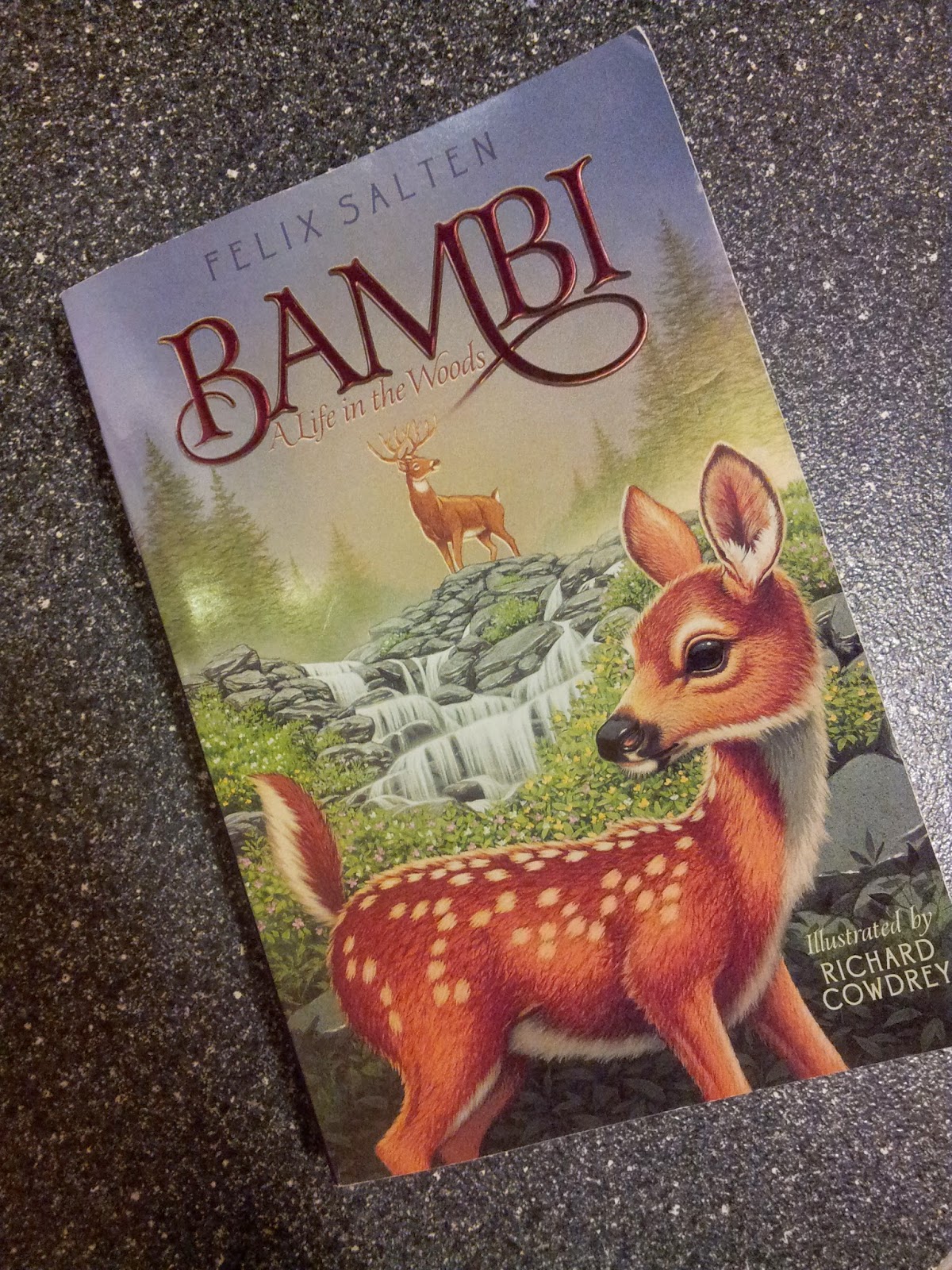Every
now and then, successful films make the novels upon which they were based
superfluous. Most everyone has seen some
version or another of such classic novels as Pride and Prejudice or David
Copperfield, but very few crack the original texts.
When Walt Disney released Bambi in 1942, it seemed to erase all
memory of its wonderful source-material, the novel Bambi, A Life in the Woods, written by Felix Salten (1869-1945) in 1923.
This is a great shame because in nearly every way imaginable, the novel is
infinitely superior to the admittedly classic film.
The
Disney film greatly softens the material, providing Bambi with amusing
sidekicks and expanding the action with comic set-pieces. Though there is an emotionally wrenching
scene where Bambi’s mother is shot by hunters, it is not overall a somber or
lachrymose film. Indeed, it is one of
the most limpid and lovely Disney films of the era.
This is
very different from Salten’s novel (originally translated into English by Whittaker Chambers). There, Bambi is born into a world of largely
absent fathers, continual threat from hunters, fierce competition for food and
resources, and the bitter reality of death.
The
lessons of Bambi are that life is often hard, and frequently entire populations
become the sport of the casually cruel and powerful. (As Salten himself would learn under the
Nazis.) Bambi particularly in his
romantic maturation, often behaves badly himself, as if Salten is saying that
we are born into a world where we are hardwired to be selfish and destructive.
While
reading classic children’s novels, it is easy to think of their adult
counterparts. (For example, Kenneth
Grahame’s The Wind in the Willows is
the Jane Austin novel of the
field). The prose of Bambi, with all its
simple, declarative force and echoes of an incantation, made me feel as if I
were reading an anthropomorphic book of the Old Testament.
It is
also a remarkable meditation on mortality and loss. While the film focuses on the death of
Bambi’s mother, the novel’s most eloquent rumination on death comes between two
leaves, anxiously discussing their upcoming fall. Here’s a brief excerpt:
“Can it be true,” said the first
leaf, “can it really be true, that others come to take our places when we’re
gone and after them still others, and more and more?”
“It is really true,” whispered the
second leaf. “We can’t’ even begin to imagine it, it’s beyond our powers.”
“It makes me very sad,” added the
first leaf.
They were silent a while. Then the first leaf said quietly to
herself. “Why must we fall?”
The second leaf asked, “What happens
to us when we have fallen?”
“We sink down…”
“What is under us?”
The first leaf answered, “I don’t
know, some say one thing, some another, but nobody knows.”
The second leaf asked, “Do we feel
anything, do we know anything about ourselves when we’re down there?”
The first leaf answered, “Who
knows? Not one of all those down there
has ever come back to tell us about it.”
Salten
was a very prolific author, publishing about one book a year on average. He is believed to be the anonymous author of
the erotic novel Josephine Mutzenbacher
(1906), which is about a Viennese prostitute.
Clearly a man of versatile literary achievements.
Like
many Jewish artists, he fell into Hitler’s crosshairs; Der Fuhrer banned
Salten’s books in 1936, and the author fled to Switzerland two years
later. He would die there.
Salter
sold the film rights to Bambi to director Sidney
Franklin for a mere $1,000; Franklin then sold the rights to Disney. As is often the case with Disney and
copyright, they would argue in the 1950s that the book was in the public domain
and attempt to retain greater profits.
(Disney evocation of copyright always struck your correspondent as
risible, considering they have made millions of dollars adapting public domain
fairy tales. Perhaps the scariest
sequence of any Disney film happens in business meetings away from the camera.)
Adults
who consider a “children’s novel” with trepidation should have no fear. No less than John Galsworthy wrote that: Bambi is a delicious book. Delicious not only for children but for those
who are no longer so fortunate. For
delicacy of perception and essential truth I hardly know any story of animals
that can stand beside this life study of a forest deer.
We
cannot argue.
Tomorrow -- the return of People’s
Symphony Concerts!

No comments:
Post a Comment